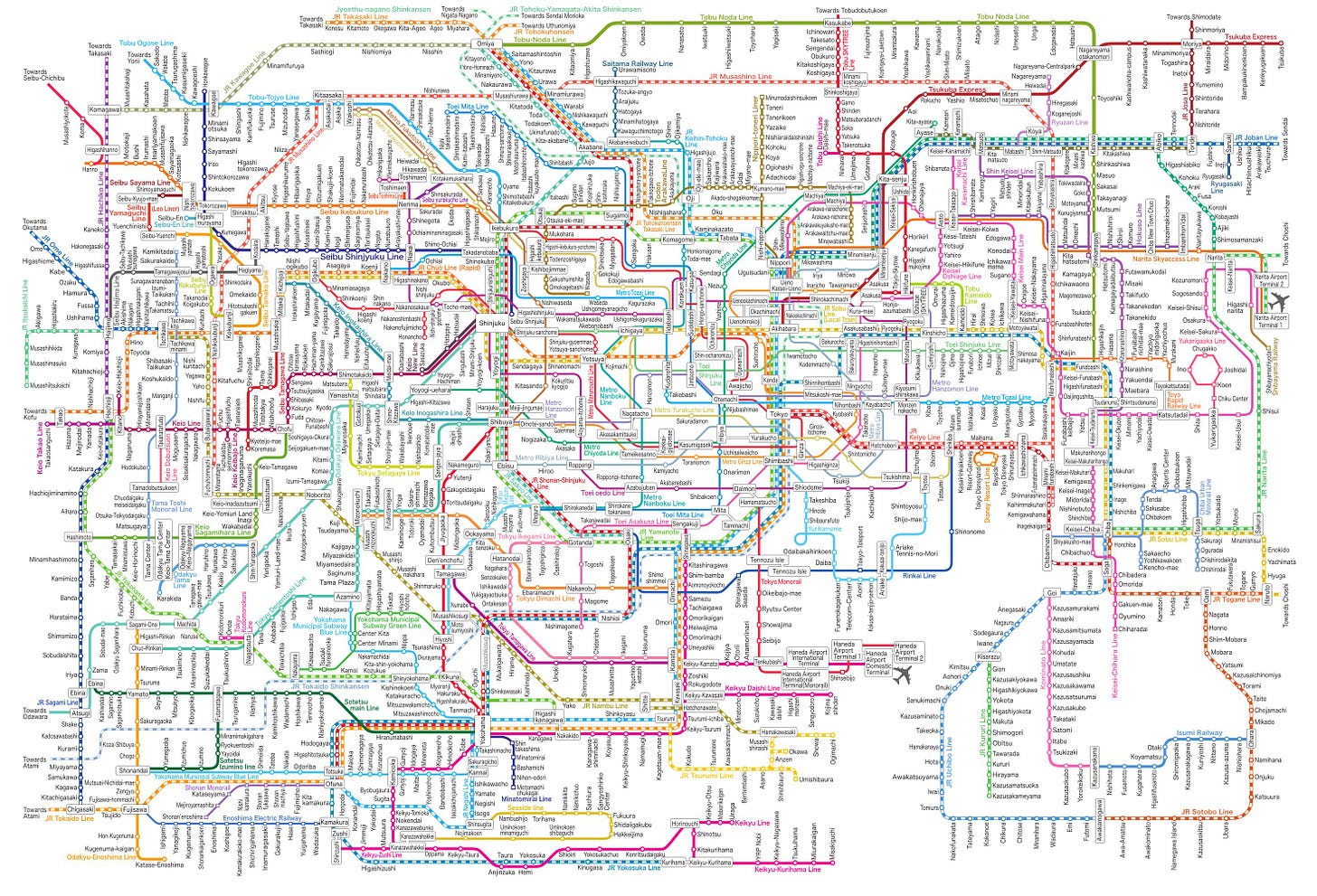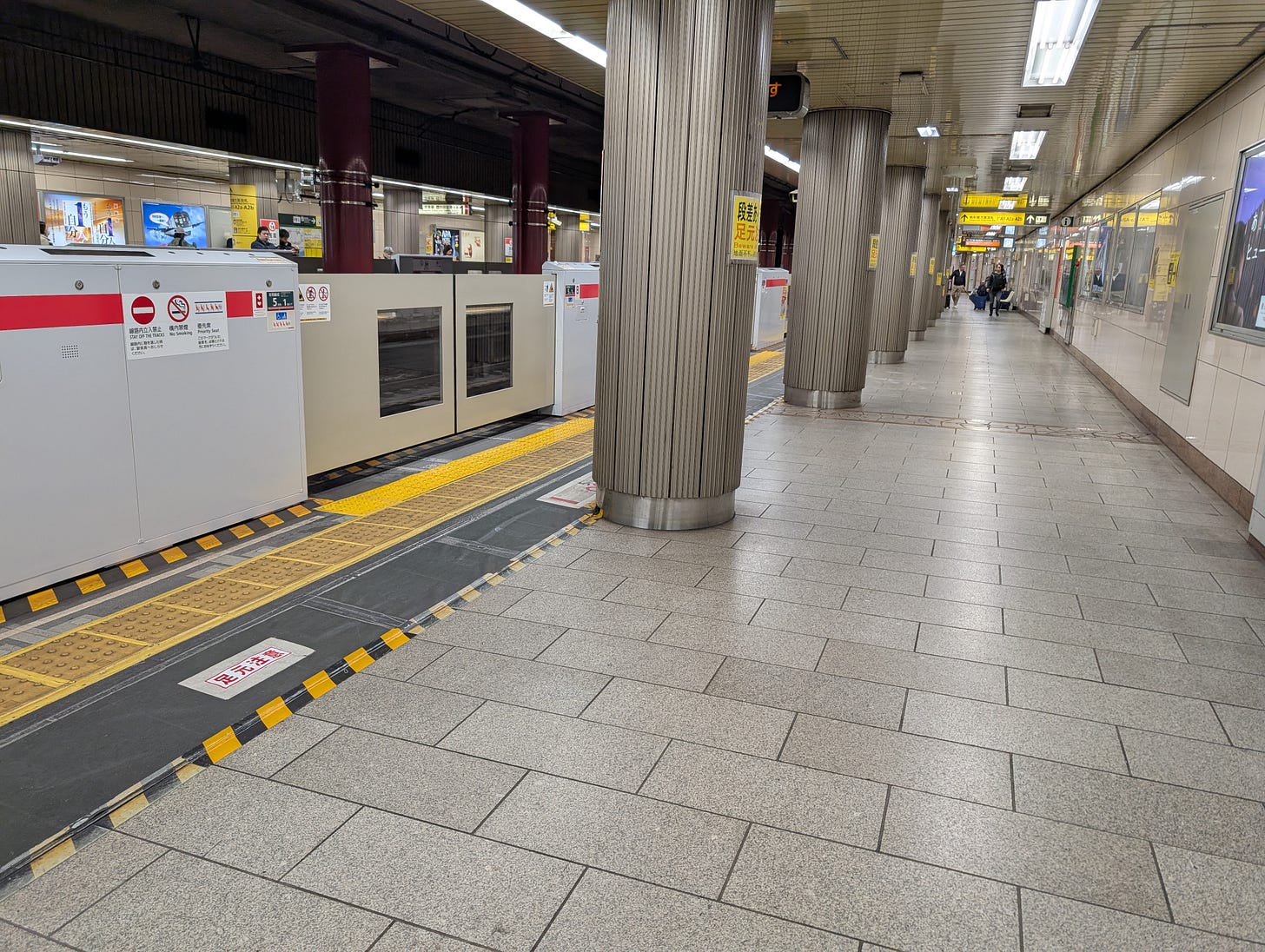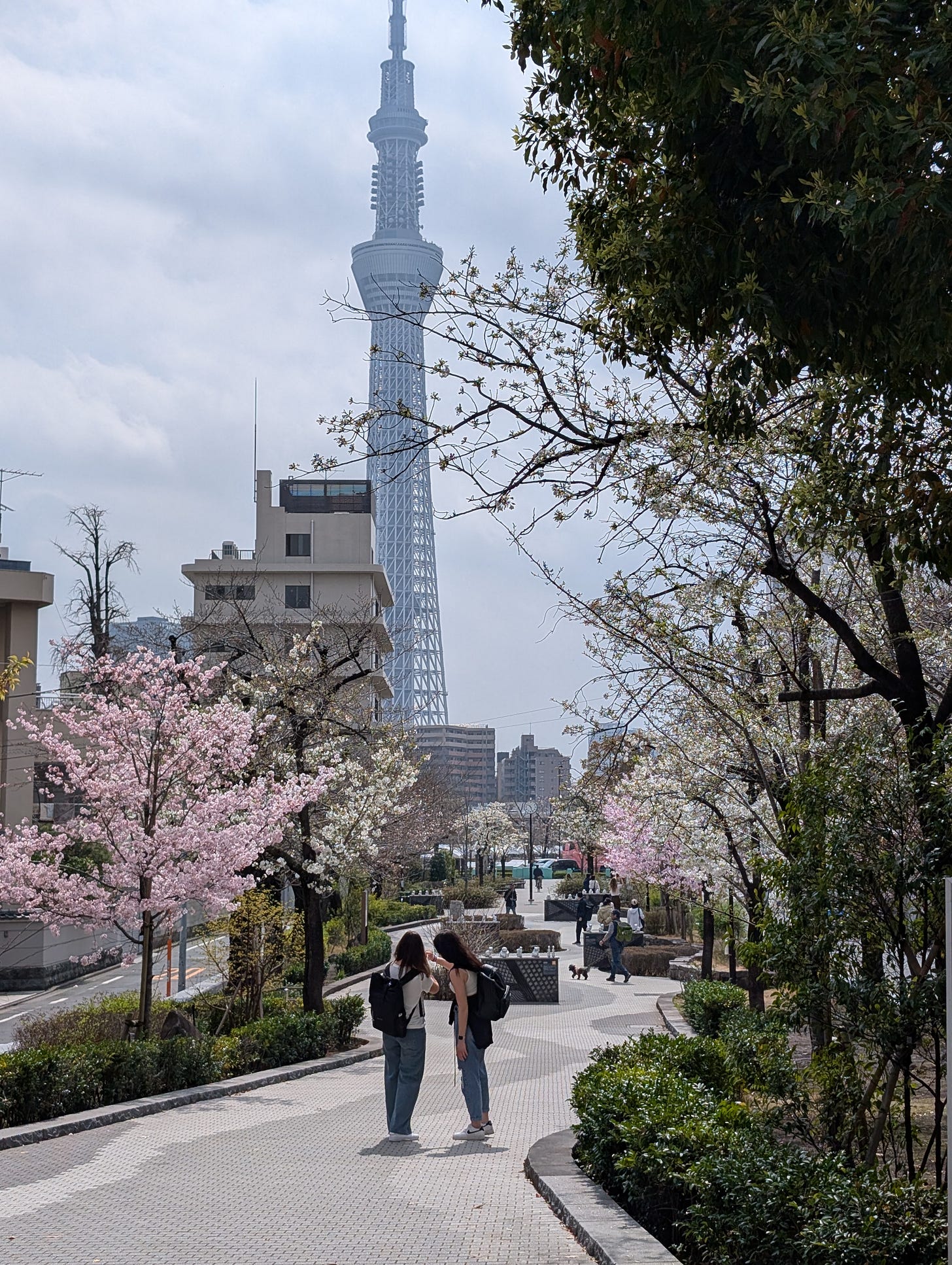Notes on Japan
There are a few places in the world where I feel at home as soon as I land. There's not much to link them, beyond being big cities. Mumbai is one. Rome is another. London, of course. Sometimes Singapore. And then there's Tokyo!
I love landing in Tokyo, with its slightly shabby but sparkling clean airport, filled with ubiquitous vending machines and extremely polite immigration officers. The first time was 20 years ago, and then it felt like the future. But when I went recently, things had changed. Or maybe I had. There are parts of it in Minato City or Roppongi that look amazing, but mostly it still feels like the future of 20 years ago! Today, it looks retro.
That's not the only weird thing either, it's become a place of contradictions. Tokyo is like the Grand Budapest Hotel set in the Star Wars universe. Meticulous, understated, extraordinary service set in a decaying retro futuristic empire that's extremely well cared for. It’s a whimsical universe too. With cute robots, impossibly well designed systems that can whip your luggage across the country at minimal cost, but with fax machines and printed out emails.
There are cafes you could go to where there are robots serving food. Some of them, albeit, teleoperated by those who can’t leave home, which is even more cyberpunk. They had these well before the current robotics revolution by the way, made real by meticulous planning and specified routes that the robot could take. They weren’t built, it would seem, to show cool a robot one could make, but to make a robot that could do something. Like clean dishes. And with extraordinary attention to detail especially in thinking through how a user might want to interact with it. The best product thinkers are clearly from Japan.
Almost everyone repeats the good endlessly. Public transport that runs like clockwork. Clean streets. Safe. Plenty of food options all over the place across every price range imaginable. Food that's even cheaper than many places one would go in Delhi or Mumbai or, obviously, San Francisco! I think it's the fact that they have 6x the number of restaurants of London or NY and no zoning restrictions on where they can be, more supply and crazy competition means that even the ramen bars in subway stations have great food.
Also, amazing sweets of all varieties and across all tastes. And some of the best western desserts I've had. And bread! And cake! Great mini-marts in almost every corner, with good snacks and really good coffee.
Actually, let me stop for a second because this is actually really weird. Nowhere in the world do you find corner stores that serve good coffee. But Japan is built differently. I asked this about regular cafes including Starbucks, and o3 thinks that it’s because cafes in Japan have better staff who take care not to scald the milk or burn the beans, better logistics so you get fresher beans, and better water which isn’t so hard.
None of which are quite enough to explain it, I think, even though the results are wonderful. And it costs like $2. Again, 20 years ago, when Japan seemed closer to the future, things seemed more expensive. Now, coming from the US or London or Singapore, things seem positively cheap! Somehow, they have made the mundane necessities of life, of buying snacks at a supermarket or getting a cup of coffee, not feel like an experience in making you wish your life were better. In the US every interaction seems poised to fill you with envy for those who live a rung above you, not in Japan.
But the topsy turvy nature of the city is fractal shaped, visible everywhere at all scales. I went to go get a Suica card to travel around and remembered (was told rather, very politely), that a) I cannot buy it because it’s not a JR station (fair), b) I also can’t buy a Pasmo because the machines only take cash (wtf), and c) the ATM wouldn’t accept my debit card.
In fact I actually tried to tap my credit card and walked in, feeling smug, that the station attendants clearly didn't know this worked. But then I learnt at the other end, the destination station, that this was only a fleeting moment of success because I couldn’t get out. They had let me in somehow but apparently those only worked on some stations?
And what happened? The most Japanese thing happened. A station attendant very politely took me around to a different railway counter to buy a different ticket with my credit card, converted that to cash, took the cash and issued another ticket for the journey I’d made, and then gave me back the change. All with a smile and occasional attempts using his phone to translate from Japanese to English to give me directions on what to do or tell me what he was doing.
The experience of having a regular employee act as your personal concierge when you have a problem more than makes up for the fact that much of the city still feels like it’s 1999.
And it does feel like the last century, or a cyberpunk future borne of the last century, when you visit. The first time I visited a couple decades ago my smartphone was one of those Windows ones with a stylus. No real camera to speak of. We didn’t have iPhones, we being the whole world. And using data on the go with a rented flip-phone felt like the future. They had the fastest trains then, but now it's China. They had the most advanced electronics, now also China. The payment systems now seem antiquated, so alas does the amazing public transit.
Not to mention a strong Germanic love for physical cash still flows through the country. It's hard when the cafes, just like the train station machines or even parts of the hospital, won’t even accept credit cards and insist on cash. But despite that it functions perfectly. Brilliantly.
The combination of employee culture and general helpfulness more than make up for the technological lack. The thing that strikes you as you go through it is how most things seem quite old but really well cared for. Things are cheap but high quality. Can't buy train tickets with a credit card but the random airport cab has wi-fi. They have FamilyMart, which as my friend Jon Evans says is like the TARDIS of convenience stores. The metro stations are the state of the art of last century, old and a bit run down, but very well cared for.
Tokyo is like Coruscant. It’s futuristic, while retro. Crazy buildings that all are different and most a bit run down, but a few that are glittering homages to the best the world can produce. With vending machines that sell everything and overhead power lines that tangle in visible clumps. The culture is what people live around, not the technology itself, which works but feels old, and grimy.
Warren Buffett once said “depreciation is an expense, and it's the worst kind of an expense”. Japan is a society that is hell bent on fighting this. And they're winning, so far. It shows how much maintenance is important to keep civilization running. It demonstrates more than anywhere else I’ve been the importance of product thinking, to ensure that the customer has a good experience regardless of the ingredients at your disposal. Of how you can use customer service and culture to make up for technological deficiencies even as you apply the technological skill to build the future.
It's the success story of applying bureaucracy at scale while keeping efficiency high and on-the-job virtue alive. At a time when ennui basically seems a communicable disease in much of the West it’s an interesting thing to see in a society.





The best part about this travel post is the attention to detail and the fact that you can remember all of it and put it down into words. Wow.
Very interesting and fun article. But you don't fully understand about using ATMs and credit cards in Japan. Japan as a society does not use credit cards like Americans. The Japanese have many debit apps and the young use them to pay at stores, restaurants and train & subway stations with their smartphones, Apple Pay, Pay Pay, etc. Most seniors still use cash! Japanese still send cash payments by mail, Genkin Kakitome I always use the prepaid card Pasmo to swipe for train and subway fare. It is easy to use. You do add money to it with cash at machines at the train/subway stations or convenience stores and it is also easy. One can get cash with their debit card in an ATM at any convenience store in Japan and as you know they are everywhere. Using Bank ATMs can be challenging. The biggest reason that everything seems cheap in Japan compared to 20 to 30 years ago is because wages have been flat since the bubble period for 25 to 30 years. Prices never went up and actually went down in the deflationary period 1998 to 2012 only rising never recently due to inflation. You forgot to mention the highly advanced Japanese Bidet toilets almost everywhere. Have the runs? No Problem in Japan. The old Squatty Potties you could find in the 80's & 90's are few and far between.